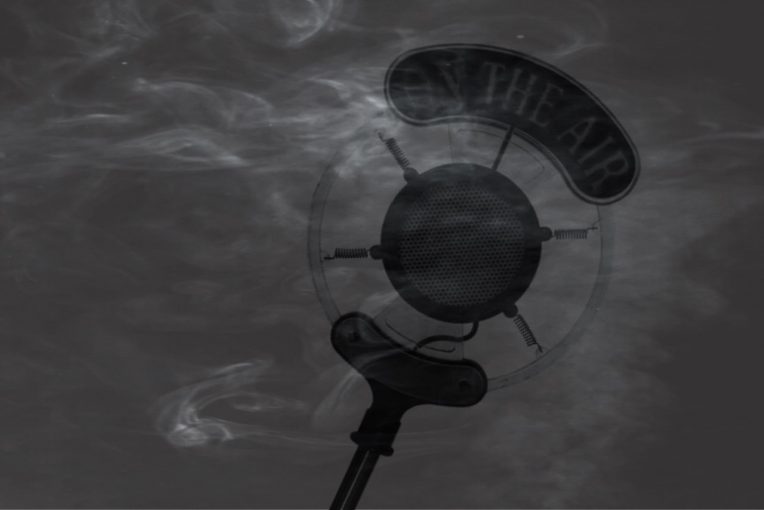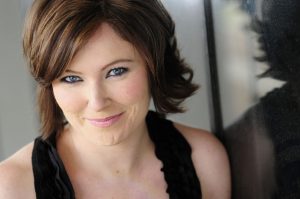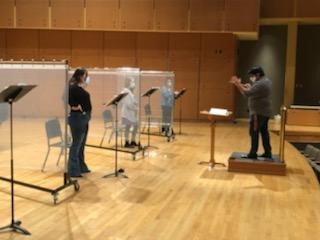The theatrical landscape of the past year has been one of hardship and adaptation, but the pandemic has presented the Illinois State University School of Theatre and Dance and School of Music with an opportunity to explore radio operas as they were originally intended to be performed. The schools have recorded a pair of productions, Douglas Moore’s Gallantry and Gian Carlo Menotti’s The Old Man and the Thief. Gallantry and The Old Maid and the Thief are prerecorded operas that will be streamed on WGLT, Friday, April 30, at 8 p.m. School of Theatre and Dance faculty member Maggie Marlin-Hess directs, with School of Music students Matthew Clarke and Nickolai Podvin as conductors.
According to Marlin-Hess, one of the most interesting things about working on the pieces has been re-adapting them for the radio. Both operas were originally written as radio performances but over time were adapted into physical performances in spaces, just like any other opera. Marlin-Hess describes the operas as “wonderfully outrageous with beautiful music. They are playful and fast-paced and carry the audience through a delightful journey. We find ourselves rooting for the characters as they wrestle with all the makings of a good soap opera (in Moore’s work) or the hysterical tug of war between our demons and our better angels (in Menotti’s).”
While Marlin-Hess was excited by the prospect of being able to explore the operas in an entirely auditory sense, the comedic aspects of the shows were a point of worry for her. “Much of comedy lives in action, so through the use of Foley sound effects and expressive voices we are trying to create images of physical behavior in the imaginations of our audience.”
The team had to contend with current coronavirus (COVID-19) restrictions during rehearsals and recording, but while Marlin-Hess describes the adapted routines as intense, she also communicates sincere admiration for her collaborators. Opera’s reliance on singing means that the team was required to leave the space at regularly scheduled times for aerosols and contaminants to dissipate, something difficult to do at moments of discovery during the rehearsal process. Marlin-Hess points out that the team has been able to find humor and uplifting energy through the process, particularly due to students behind the scenes such as the stage manager for the show, Kylee Hozian. “Without her leadership and disarming demeanor, we would be lost, behind schedule, and frazzled. Instead we are laughing together, enjoying each other as we create, and grateful to hear live, beautiful music bouncing around the CPA Concert Hall.”
“As a teacher I am always looking for ways to encourage my students to think outside the box. This was my turn to take a lesson from them, and for that I am humbly grateful.”
Maggie Marlin-Hess
While the spring opera’s format shifted due to the pandemic, there is one consistent message that has resonated throughout each shift The School of Theatre and Dance has experienced: the resilience of their student body. “When the COVID door slammed shut, yanking the rug out from underneath them, and robbing them of their production experiences,” Marlin-Hess stated, “they responded by creating opportunities where none had existed, in new ways that had never existed. They kept on creating and collaborating by any means necessary. The students in Theatre and Dance are hungry, resilient, and inventive problem-solvers. As a teacher I am always looking for ways to encourage my students to think outside the box. This was my turn to take a lesson from them, and for that I am humbly grateful.”



